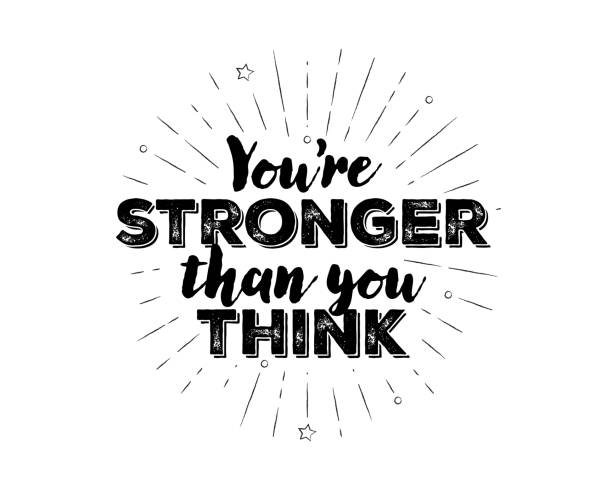Now Reading: 150 Words of Encouragement for different situations and persons.
-
01
150 Words of Encouragement for different situations and persons.
150 Words of Encouragement for different situations and persons.

Imagine a day where everything seems to be against you, and then someone offers a kind word that changes your entire perspective. Or consider Helen Keller’s famous quote, “Although the world is full of suffering, it is also full of overcoming it.” This encapsulates the profound impact that words of encouragement can have, turning hard times into moments of growth and discovery.
Words of encouragement are those positive words and phrases we use to lift spirits, inspire action, or offer comfort. They are the verbal or written expressions of support, encouragement, and courage that can transform a difficult situation into one where inner strength is acknowledged and nurtured. Whether it’s a loved one offering a good thing to say during a tough time or finding solace in inspirational quotes, these words act as positive reinforcement, helping to combat fear and promote happiness.
Life is 10% what happens to us and 90% how we react to it.” — Charles R. Swindoll
Drawing inspiration from notable figures such as Helen Keller and Mahatma Gandhi, and leveraging personal information and testimonials, we’ll illustrate how words can be a beacon of hope and a driving force for positive change. From the inspiring quote that gets us through a tough decision to the little encouragement that helps us take on a new challenge, words play a pivotal role in our lives.
This article will explore the science behind encouragement, provide examples of motivational quotes and encouraging words, and discuss how to use these uplifting words to navigate life’s challenges effectively. We’ll look at how such words can boost confidence, inspire good work, and offer inspiration during hard decisions or when facing difficult times. By understanding and implementing words of encouragement, we can all contribute to a more supportive and resilient mental health landscape.

The Science Behind Words of Encouragement
Research conducted by Dr. Barbara Fredrickson, a psychologist at the University of North Carolina, found that positive words broaden our sense of possibilities and open our minds to new experiences. This concept, known as the broaden-and-build theory, suggests that positive emotions (triggered by positive words) can build our personal resources and resilience over time.
Psychological Impact of Positive Words
Encouragement isn’t just about making someone feel momentarily better; it has profound psychological benefits backed by numerous studies.
Boosting Self-Esteem: When someone hears encouraging words like “You are doing a great thing” or “I believe in your strength,” it can significantly enhance their self-esteem. Research from the University of Pennsylvania has shown that positive feedback can lead to a more positive self-view, which is crucial for personal development and resilience.
Reducing Anxiety: A study published in the “Journal of Positive Psychology” found that individuals who received regular encouragement experienced lower levels of anxiety. The act of receiving positive words can serve as a reminder that one is not alone, providing comfort and reducing the sense of isolation that often accompanies tough times.
“Kind words can be short and easy to speak, but their echoes are truly endless.” — Mother Teresa
Enhancing Resilience: Encouragement can foster resilience by reinforcing the idea that hard work and perseverance pay off. Psychological research indicates that people who feel supported are more likely to bounce back from setbacks, viewing them as temporary rather than permanent states.
Confidence: Hearing phrases like “You’re capable of amazing things” can instill confidence, enabling individuals to tackle hard decisions with a stronger belief in their abilities.
Psychological Impact of Negative Words
Negative Words: On the contrary, words with negative connotations can activate the brain’s fear center, the amygdala, leading to increased stress and anxiety. Negative self-talk, such as “I’m not good enough” or “I can’t do this,” can erode self-esteem and contribute to mental health challenges.
A study published in the Journal of Cognitive Therapy and Research found that repetitive negative thinking is closely linked to the development and maintenance of depression and anxiety disorders.
Neuroscience
The impact of words of encouragement extends into the realm of neuroscience:
Neurotransmitter Release: When we hear positive reinforcement, our brains release neurotransmitters such as dopamine and serotonin. Dopamine is associated with pleasure and motivation, making us feel good about our efforts and encouraging us to repeat behaviors that lead to success. Serotonin, on the other hand, contributes to feelings of well-being and happiness, essentially acting as a natural mood stabilizer.
Brain Activity: Studies using fMRI have shown that positive affirmations and encouraging words can activate areas of the brain associated with self-related processing and reward, like the ventral striatum. This suggests that positive words not only make us feel better emotionally but also physically change how our brains process information, leaning towards optimism and hope.
Plasticity and Growth: Long-term, consistent exposure to encouragement can lead to neuroplastic changes, where the brain’s neural pathways adapt to favor positive thinking patterns, enhancing one’s ability to cope with difficult situations.
By understanding these psychological and neurological effects, we can appreciate why words of encouragement are not just nice gestures but essential tools for mental health, capable of transforming hard times into opportunities for growth and healing.
Related: The Power of Words of Affirmation for Mental Health
Types of Words of Encouragement
Affirmations:
Affirmations are positive words or phrases one can say to themselves to cultivate a more positive self-image. They are self-directed statements that aim to reinforce one’s confidence and inner strength.
Examples: “I am capable of handling whatever comes my way,” or “I am worthy of love and respect.” These positive affirmations can be particularly powerful when facing hard times, acting as a reminder of one’s capabilities and value.
Impact: Regular use of affirmations can rewire thought patterns, promoting a healthier self-view and reducing self-doubt.
Compliments:
Compliments involve giving specific, sincere praise to someone about their actions, achievements, or qualities. They are a direct form of positive reinforcement that can brighten someone’s day or motivate them to continue good work.
Examples: “You’ve shown amazing resilience in this difficult situation,” or “Your creativity really brought this project to life.”
Impact: Compliments can significantly boost self-esteem and morale, making individuals feel seen and appreciated, which is especially uplifting during tough times.
Supportive Statements:
These are phrases that show empathy, understanding, and support. They are crucial during moments when someone is going through a hard time or facing a difficult time, offering a verbal hug through words.
Examples: “I’m here for you, no matter what,” or “It’s okay to feel this way; you’re not alone.” These statements provide comfort, validation, and remind individuals they have support.
Impact: Supportive statements can alleviate feelings of isolation, reduce anxiety, and promote a sense of community and belonging.
Motivational Quotes:
These are often inspirational quotes from notable figures like Mahatma Gandhi or Helen Keller that resonate with people across different contexts. They distill complex ideas into simple, powerful words that inspire action or offer perspective.
Examples: “Be the change that you wish to see in the world” by Gandhi, or “The only thing worse than being blind is having sight but no vision” by Keller.
Impact: Motivational quotes can serve as a quick burst of inspiration, encouraging people to push through tough times or to see the good thing in every situation. They can be particularly effective when someone needs a little encouragement to keep moving forward.
Each type of encouraging word serves a unique purpose, from fostering personal growth through affirmations to strengthening interpersonal relationships with compliments and supportive statements. Motivational quotes offer a universal touchpoint of inspiration, reminding us of the collective human experience and the strength we can draw from shared wisdom. By understanding and using these different forms of encouragement, we can create environments where happiness and resilience are nurtured.
Words of Encouragement to Use for different situations and persons

For Overcoming Hard Times:
- You’ve survived every bad day so far; you’ll get through this one too.
- This too shall pass.
- You are stronger than your challenges.
- Every storm runs out of rain.
- You’re not alone in this; I’m here with you.
- Tough times build resilience; you’re growing through this.
- With every hard time, you’re gaining wisdom.
- You have the courage to face this.
- Remember, after darkness comes light.
Words of Encouragement For Boosting Self-Esteem:
- You are enough, just as you are.
- Your uniqueness is your strength.
- I admire the person you are becoming.
- You have so much to offer the world.
- You deserve to be proud of yourself.
- Believe in your own magic.
- You’re doing great things.
- Your value doesn’t decrease based on someone’s inability to see your worth.
- You are capable of amazing things.
For Motivation and Hard Work:
- Hard work beats talent when talent doesn’t work hard.
- Every small step is progress.
- Keep pushing; you’re closer than you think.
- Your effort will pay off; keep going.
- Success is a journey, not a destination.
- Keep your eyes on the goal; you can do this.
- Each effort is a step towards greatness.
- You’re building something incredible with each day’s work.
- Perseverance is the hard work you do after you get tired of doing the hard work you already did.
Words of Encouragement For Support During Grief or Loss:
- It’s okay to grieve; it shows how much you loved.
- Your feelings are valid, and I’m here to listen.
- Healing takes time; be patient with yourself.
- I’m here to remember with you.
- You’re not alone in your sorrow.
- Your love leaves a lasting impact.
- Feel your emotions; they’re part of the healing.
- I’m here for you, in silence or in words.
- Love never disappears; it transforms.
For Encouraging Loved Ones:
- You make my world brighter.
- I believe in you more than you know.
- Your presence is a gift.
- You inspire me every day.
- I’m so grateful for you.
- You’re doing an amazing job at life.
- I love seeing you grow.
- You make every day better.
- I’m proud of you, always.
Words of Encouragement For Facing Fear:
- Courage is resistance to fear, mastery of fear, not absence of fear.
- You are braver than you believe.
- Fear is temporary; regret lasts forever.
- Every brave act begins with facing fear.
- You have the strength to confront this.
- Fear is just a feeling, not the truth.
- You can do hard things.
- Face the fear and do it anyway.
- Your fear doesn’t define you; your actions do.
For Celebrating Successes:
- You did it! I knew you could.
- This is just the beginning of your successes.
- Celebrate every win, big or small.
- You’re on fire with these achievements!
- Look at what you’ve accomplished!
- Proud doesn’t begin to cover it.
- You’re a star for this.
- Keep shining; you deserve this recognition.
- You make greatness look easy.
Words of Encouragement For a Coworker:
- You’ve really made a difference with your work, thank you.
- Your dedication is inspiring; keep up the great work.
- I appreciate your teamwork and the positive energy you bring.
- You’ve handled this project with such skill.
- Your ideas are always spot-on; you’re a valuable part of this team.
- You make our workplace better; thank you for your efforts.
- I’ve learned so much from working with you.
- Your persistence with this task is commendable.
- You’ve shown great leadership in this situation.
For a Partner:
- I love how you handle challenges with grace.
- You make our life together so beautiful.
- I’m so lucky to have you by my side.
- Your love is my greatest comfort.
- You make every day an adventure.
- I admire your strength and kindness.
- With you, I feel like I can conquer anything.
- You’re my home, my heart, my everything.
- I appreciate all you do for us.
Words of Encouragement For a Child:
- You are growing into such a wonderful person.
- I’m so proud of how you shared today.
- You did such a great job today; I’m proud of you!
- You’re brave for trying something new.
- Every day you make me smile with your creativity.
- I love watching you learn and grow.
- You’re doing amazing at school!
- Keep being your kind, wonderful self.
- I believe in you; you can do this!
For a Friend:
- You light up my life with your friendship.
- I’m here for you, through thick and thin.
- You’ve got a heart of gold; don’t ever change.
- Your laughter is my favorite sound.
- I admire how you handle life’s ups and downs.
- You’re an amazing friend, and I’m so grateful for you.
- We’ll get through this together.
- Your friendship means the world to me.
- I believe in you, always.
For a Family Member:
- Family is forever, and you’re my rock.
- I’m so proud to be related to someone as wonderful as you.
- Your support means everything to me.
- You’ve taught me so much about love and life.
- Our family is stronger because of you.
- You make family gatherings so special.
- Thank you for always being there.
- I love how we share this bond.
- You’re not just family; you’re my friend.
Words of Encouragement For Someone in Recovery:
- Every step you take is a victory.
- I admire your courage in this journey.
- You’re doing something incredible for yourself.
- You’re stronger than your struggles.
- I’m proud of your commitment to recovery.
- Keep going; each day is a new beginning.
- You’re inspiring those around you with your resilience.
- Recovery is about progress, not perfection.
- You’ve got this; I believe in your recovery.
For Someone Feeling Down:
- It’s okay to have off days; they pass.
- You’re not alone; I’m here with you.
- Your feelings are valid, and I’m here to listen.
- Tomorrow is a new day with new possibilities.
- You bring so much to the world, even on your darkest days.
- I see your light, even when you don’t.
- You are loved, even in your lows.
- This moment doesn’t define you; you have so much more to offer.
- I’m here for you, to share the load or just to listen.
For a Teacher or Mentor:
- Your dedication to teaching is truly inspiring.
- You have a gift for making complex things understandable.
- Thank you for guiding me; I’ve learned so much from you.
- Your patience and passion change lives.
- You’re not just teaching subjects; you’re shaping futures.
- I appreciate how you’ve challenged me to grow.
- Your influence extends beyond the classroom.
- You make learning an adventure.
- Thank you for believing in my potential.
Words of Encouragement For Someone Pursuing a Dream:
- Your dream is worth chasing; go for it!
- Each step you take brings you closer to your goal.
- I see your passion, and it’s moving mountains.
- Keep dreaming big; the world needs your vision.
- You’re on the path to something great.
- I believe in your dream as much as you do.
- Your determination is your superpower.
- You’re building something amazing with every effort.
- Don’t give up; your dream is within reach.




















* * * Win Free Cash Instantly: https://massivemelon.com/?lentzi * * * hs=396a404a86e1c94540a963d1d312ecfa*
m5qaz3